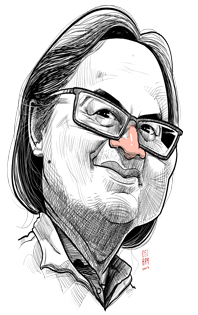Noer Fauzi Rachman*)
The Making of the Sundanese Peasant Union (SPP), the Biggest Contemporary Agrarian Movement Organization in Java, Indonesia**)
Critical self-consciousness means, historically and politically, the creation of an élite of intellectuals. A human mass does not 'distinguish' itself, does not become independent in its own right without, in the widest sense, organising itself: and there is no organisation without intellectuals, that is without organisers and leaders... But the process of creating intellectuals is long and difficult, full of contradictions, advances and retreats, dispersal and regrouping, in which the loyalty of the masses is often sorely tried."
(Gramsci 1971:334)
Sundanese Peasant Union (SPP) provides an exemplar on the way rural local leaders[1] and urban educated activists[2] able to reorganize dispossessed peasants and to revive agrarian reform politics before and after the Indonesia bureaucratic-authoritarian-military regime downfall in 1998. To understand the ways SPP emerged through the establishment and the situated practices of this nexus, I have been convinced by Gramsci (1971:16) approach to do “a concrete historical analysis of how both organic and traditional intellectuals categories have developed” [3] in the context of trajectory of land struggles in West Java upland, and in that of changing political conjunctures, before and after the fall of authoritarian regime in 1998.

